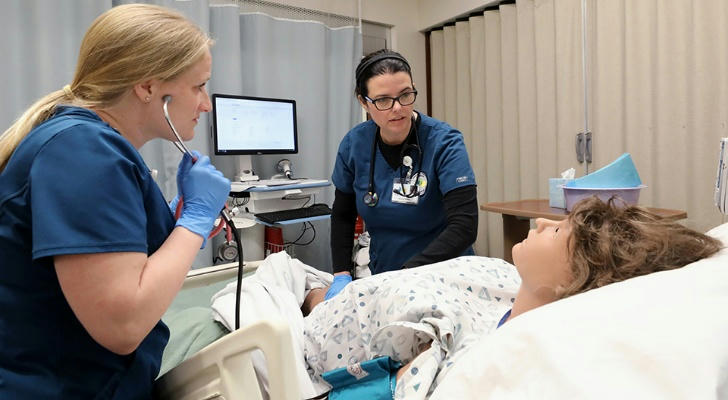Exploring the Profession of Registered Nurses in the United States
In the United States, the healthcare sector has always been a crucial and rapidly developing field, with registered nurses (RNs) playing an indispensable role within it. This article will explore the professional landscape of registered nurses in the U.S., including their responsibilities, career development paths, challenges they face, and an analysis of real-life cases highlighting the critical roles they play in the healthcare system.

Responsibilities of Registered Nurses
• Patient Care: This is the core task of a registered nurse. It includes monitoring patient conditions, administering medications, executing treatment plans, and assisting doctors in diagnosis and treatment.
• Health Education: Registered nurses are responsible for guiding patients and their families in disease prevention and health management. This includes teaching how to use medical equipment or care techniques to enhance the patient’s self-management capabilities.
• Condition Assessment and Recording: Nurses need to perform initial assessments of patients and document any changes in their conditions so that physicians can make more targeted treatment decisions.
• Support and Psychological Care: In many cases, patients and their families require emotional support. Registered nurses provide comfort and information to help reduce the anxiety and stress of patients and families.
Career Development Path
• Educational Requirements: The basic requirement to become a registered nurse is to complete relevant nursing education courses. This typically involves earning a Bachelor of Science in Nursing (BSN) or an Associate Degree in Nursing (ADN).
• Licensing Examination: After completing education, individuals must pass the National Council Licensure Examination for Registered Nurses (NCLEX-RN) to obtain a license to practice. This exam comprehensively tests theoretical knowledge and practical skills acquired during the educational phase.
• Continued Education: After licensure, registered nurses must engage in continuous education and training to maintain and enhance their professional skills. This often includes attending professional conferences, workshops, and further courses.

Challenges Faced
• Work Pressure: Nursing is an inherently high-intensity and high-pressure job. Continuous exposure to illness and emergency situations requires nurses to have strong psychological resilience and stress management capabilities.
• Shortage of Human Resources: In the U.S., there is a persistent shortage of nursing resources. This situation places higher demands on the workload and working hours of nurses, occasionally leading to fatigue and burnout.
• Rapid Technological Development: With medical technology evolving rapidly, nurses must continually learn to effectively handle new technologies and medical devices, ensuring they provide the best possible care for patients.

Real-Life Case Analysis
Case: A Day in the Life of an ICU Nurse
• Background: Ann is a registered nurse working in the Intensive Care Unit (ICU) of a large hospital in California.
• Problem Encountered: One morning, Ann was notified that the vital signs of a patient under her care suddenly became unstable, with their heart rate and blood pressure dropping sharply.
• Response: Ann immediately implemented the hospital's emergency response procedures. With calm and swift actions, she stabilized the patient's condition: first, ensuring the patient’s airway was clear, then using medical equipment for necessary monitoring and recording, while simultaneously notifying the on-duty physician and care team.
• Outcome and Reflection: Through Ann’s professional judgment and quick response, the patient’s condition was effectively controlled. This example demonstrates the critical role of registered nurses in handling medical emergencies, emphasizing the importance of their rigorous professional training.
Conclusion
Registered nurses hold a central position in the U.S. healthcare system. They not only provide direct patient care but also play vital roles in health education and emotional support. Despite facing numerous challenges such as high work pressure, shortages in human resources, and ever-evolving medical technology, registered nurses, through professional training and personal determination, consistently strive to provide exceptional care services to patients.
